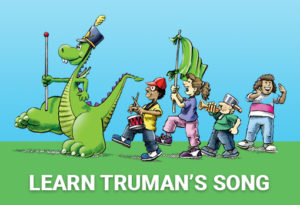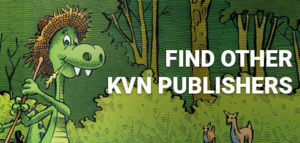A Cultural Anthropologist
Tell me a little bit about yourself — some background information for our readers.
My name is Nathalie Dajko. I’m 38 years-old and I’m mostly from Vancouver, BC.,though I’ve lived in New Orleans, Louisiana for 12 years now — longer than I’ve lived anywhere else. I’m a professor in the anthropology department at Tulane University, where I also got my doctorate.
What does an anthropologist do?
Anthropology is the study of people. There are different types of anthropologists. Some study humans via bones and/or via similar species (physical anthropologists), some study ancient cultures via material remains like pottery (archaeologists). Some study the cultures of living people (cultural anthropologists). I’m interested in language; I’m a linguistic anthropologist. I’m especially interested in language variation, and in how people express various aspects of their identity, such as their ethnicity, via their dialect. I work with Louisiana French and with Louisiana English. In order to study these things I go out and interview people: I ask them to read passages aloud or translate sentences from French into English, and I ask them to talk about their lives and their cultures. The interviews take an hour or more and are recorded on digital recorders or video cameras so I can listen and/or watch them again later, when I type up what people have said and analyze their speech. I write articles and produce videos based on the interviews I conduct. Language is a part of culture, so I do ethnographic work as well to help me understand the variation I find. This means I participate in both everyday and ceremonial life. As a result, I’ve spent time working as a deck hand on a shrimp boat, helped to clean up after a hurricane, attended church and temple ceremonies and spoken at funerals. I also teach classes at Tulane; I’ve taught introductory classes on linguistics and on cultural anthropology and I’ve taught advanced classes on language variation, field methods and local language documentation.
When and why did you first become interested in working as an anthropologist?
I’m not one of those people who knew what they wanted to do when they were 7-years-old. I mostly fell into what I do by lucky accident. I tried a few other fields before I settled on anthropology for my undergraduate major because I enjoyed those classes the most (I was a fine arts major first, until it became clear it wasn’t for me). I think my my love of the history and of travel played a role, as well, in making the decision. I came to Louisiana to do my PhD because I wanted to hear what Louisiana French sounded like, since I already spoke Parisian French (thanks to the year I spent in France when I was 16-17) and I had lived in Montreal and heard the French there, too. So I found myself in graduate school studying Louisiana French, and it was the happiest accident ever. I loved the work and I loved Louisiana as well. Best of all, I got to stay!
What does it take to become an anthropologist?
If you want to do the kind of thing I do, you need a PhD in anthropology or linguistics. But there are anthropologists in all kinds of other jobs as well, many of which only require a four-year degree. Pretty much all you need for any of these is an interest in human diversity.
What is a typical day like for you?
Every day is different. When school is in, I teach two classes per semester, so I meet with students six times a week, and I meet with the graduate students for extra sessions. Between classes I meet with students, attend meetings, grade papers, evaluate the graduate students’ work and work on writing up my own research. Sometimes I head out into the city to conduct interviews when my teaching is done for the day but more often I leave research for the summer. I also attend conferences at which I present my work a few times a year.
What are some of the challenges of your job?
Oddly enough, I’m actually very shy, so I have to force myself to overcome my fear of talking to strangers when I conduct interviews. I love people, but I’m also intimidated by the prospect of approaching a stranger and asking them to sit down and talk to me on tape. Likewise, when I teach, I have to overcome stage fright every day. But it’s worth the effort in the end — I meet so many interesting people and hear so many interesting stories as a result! And I get to learn, at least a little bit, what it’s like to live someone else’s life.
What is your favorite thing to do when you are not working?
I live in New Orleans, so I love going to as many of the many festivals we have as I can, though Carnival (Mardi Gras) is still my favorite. I also have a new baby, so lately I spend a lot of time introducing him to the world — his favorite adventure so far seems to have been a ride on the street car.
What is something cool that most people don’t know about your line of work?
When people hear that I study language, they think I’m here to make sure they’re talking right. In reality, all dialects are interesting and complex and equally good. I’m interested in the way people really speak, not the standard they’re “supposed” to speak. Also I only speak two languages, not 15. You can be a terrible language learner and still study language.





